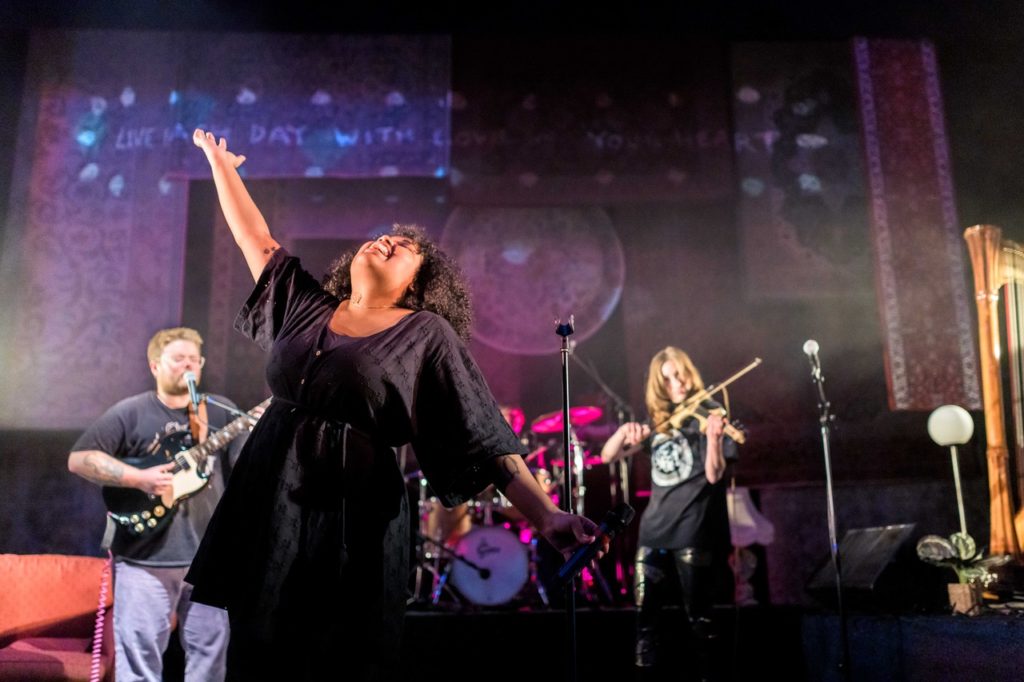
14 – 24 September
Malaika Kegode takes the stage with the confident air of someone who has something to say. Like the Ancient Mariner she has a story to tell that people need to hear. She needs to unburden herself of something, of witness that echoes beyond her own experience. The terrain of her story is the world of parents’ houses and bedsits, the world between youth and nascent adulthood, the world of important youthful relationships and the world of youthful experimentation. Her poem is the song of lost youth, a song of lost opportunities, of lost loves and lost lives and lost direction in parts of the country that are lost to view.
It’s not a story to be told on a street corner so designer, Rebecca Wood has thoughtfully brought the living room into the theatre. It’s the kind of living room your parents would recognize and the scene of much of the story. The first few rows of theatre seats have given way to a space with sofas and armchairs. It’s familiar and it’s just that comfortable familiarity that is juxtaposed to the raw, salutary journey, which unsuspectingly, we are taken on.
This is poetry of a popular cast, but without the dismissive connotations that term usually carries. It is the kind of poetry that throws a net around experience and gives it familiar yet arrestingly novel expression. Her boyfriend Oskar asks her to dance:
He puts his hand on my waist and I feel like spaghetti on a fork.
again of a friend lost to drugs;
The scariest thing is being in a room with someone you love, and feel alone.
or
When someone dies everything seems piercingly significant.
Malaika Kegode has a gift for metaphor that will suddenly illuminate a sentence as if it is constructed of LEDs. She has both the command of language and sensitive observation that are the necessary and sufficient conditions of poetry.
And then there is the onstage band Jakabol, a band with one foot in folk rock and the other wherever seems appropriate. They pick up the emotional mood of the poetry and run with it, sometimes seamlessly taking it on as the words pause, at others describing visceral loss like the emotional scratching of a blackboard. And everything is brought together by Jenny Davies’ sure-footed direction that brings balance and a confident trajectory to the whole.
Outlier narrates the slippery road from youthful experimentation to loss, death, hopelessness and wasted lives. Stark, touching, witty, well observed and moving, it is narrative poetry for a new age and a new audience; it is nothing short of brilliant.
★★★★★ Graham Wyles, 17th September, 2022
Photo credit: Paul Blakemore


